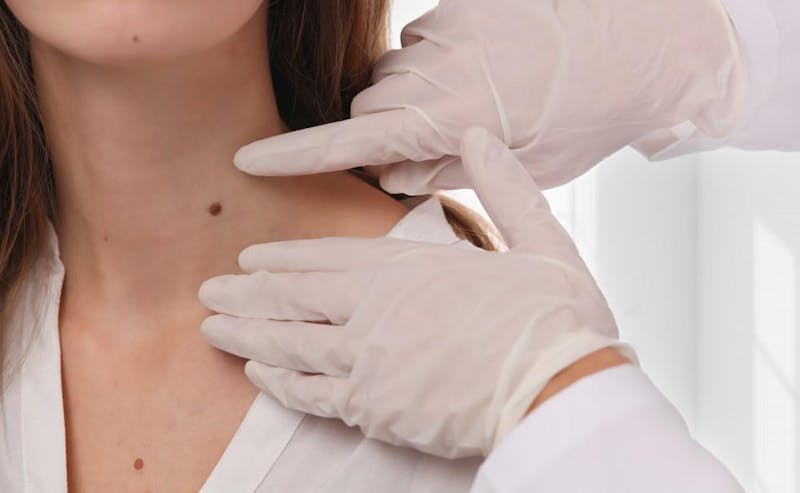
An estimated 9,500 Americans receive a skin cancer diagnosis each day. Fortunately, specialized treatment with Mohs surgery can deliver cure rates as high as 99% while preserving more healthy tissue in the area.
But Mohs surgery still leaves a wound behind, which means you need expert care for optimal healing.
Our team of specialists at Wound Evolution - Wound Care and Hyperbaric Medicine brings advanced training to Mohs surgery wound care. In their expert hands, you can expect faster recovery times with less risk of complications.
Here are some of our insights into why these wounds require special attention.
Mohs surgery basics
Unlike other surgeries, Mohs removes thin layers of tissue a little at a time. After removing each layer, your surgeon analyzes the sample for cancer cells. If cells remain, they remove another layer of tissue. This process continues until no abnormal cells remain.
This approach enables your surgeon to remove any cancer present while preserving as much healthy tissue as possible. As a result, you could have a post-Mohs surgical wound that appears small or deep. It could also require stitches or skin grafting.
Whether you have a small, deep, open, or closed wound, proper care for the surgical site is essential to promote healing, minimize scarring, and prevent complications.
Potential post-Mohs complications
Facing a cancer diagnosis is hard enough, so the last thing on your mind is post-surgery complications. But your skin is your body’s natural, protective barrier against infection.
When your skin is broken, even by a surgeon, you can experience problems during the healing process, especially bleeding, infection, and wound dehiscence.
Bleeding
It’s actually normal for new wounds to bleed or leak small amounts of clear liquid at first. But if excessive bleeding occurs, it can be difficult to stop and affects the healing process.
Infection
A bacterial infection is a significant risk any time you have a wound. Signs of wound infection include:
- Discolored drainage
- Redness surrounding the wound
- Worsening pain
- Fever
- Enlarged lymph nodes near your surgical site
Developing an infection can put your recovery at risk and even jeopardize your overall health.
Wound dehiscence
This complication occurs when the edges of your surgical incision don’t close properly. As a result, the wound separates and reopens, which affects the healing process.
All of these complications can also lead to a non-healing surgical wound. Without treatment, these wounds can become progressively worse or chronic.
Post-Mohs wound care
Fortunately, you can reduce your chances of post-Mohs surgery complications by working with our wound care specialists. Our expert services include advanced treatments to accelerate the healing process and minimize scarring, including:
- Wound cleansing
- Specialized bandages and antimicrobial dressings
- Compression therapy
- Bioengineered skin grafts
- Hyperbaric oxygen therapy
- Debridement for infection
We also offer nutrition and hydration guidelines to help support the healing process in your body. These strategies include daily recommendations for calories, nutrients, and protein. We could also recommend specific supplements to help improve your recovery.
To learn more about post-Mohs wound care, contact one of our locations by calling or booking an appointment online today. We have offices in Dallas and Fort Worth, Texas, and in Overland Park, Kansas.

